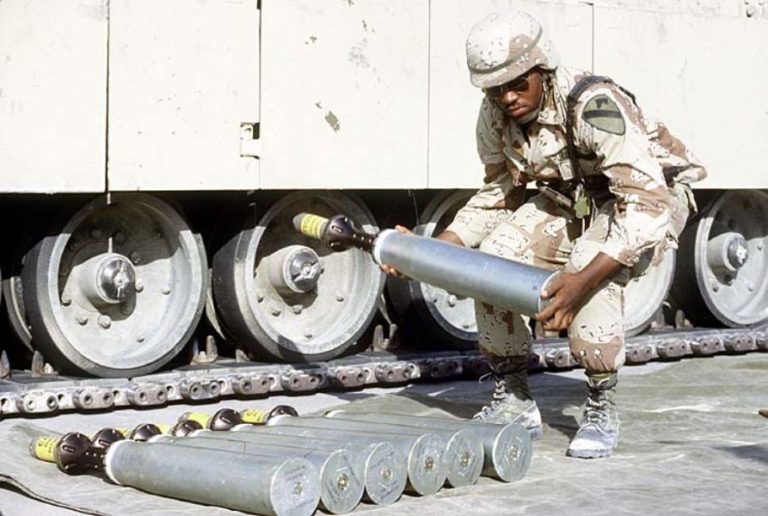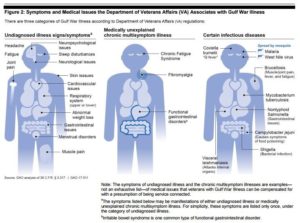Gulf War Illness and VA Disability

CCK Law: Our Vital Role in Veterans Law
“Gulf War Illness” and “Gulf War Syndrome” refer to some of the conditions veterans have developed as a result of their service in the Persian Gulf War. Our panel discussed how to navigate the complex area of Gulf War claims and some common mistakes VA makes when adjudicating these claims.

What Is the Persian Gulf War?
For VA purposes, the Persian Gulf War refers to service in the Southwest Asia theater of military operations beginning on August 2, 1990. At present time, the period for the Persian Gulf War extends to December 31, 2026, which means that service members who have served in the Southwest Asia theater of military operations after September 2001 are eligible for benefits under VA’s Gulf War presumption (more on the presumption under “VA’s Gulf War Presumption”).
VA considers service in the following countries and locations as Gulf War service:
- Bahrain
- Gulf of Aden
- Gulf of Oman
- Iraq
- Kuwait
- Oman
- Qatar
- Saudi Arabia
- The United Arab Emirates (U.A.E.)
- Waters of Persian Gulf, the Red Sea, and the Arabian Sea
- The neutral zone between Iraq and Saudi Arabia
- The airspace above these locations
Veterans of Operation Desert Storm and Desert Shield meet the criteria for qualifying service during the Persian Gulf War, as do veterans of Operation New Dawn (OND), Operation Iraqi Freedom (OIF), and in some instances, Operation Enduring Freedom (OEF).
What Were Veterans Exposed to?
In the Persian Gulf War, veterans were exposed to a number of hazardous toxins and harmful environmental conditions. Not all of the exposures are known at this time, but it is clear that service members were exposed to smoke from oil well fires, nerve gas release, insecticides and pesticides including flea collars, various vaccinations, and high levels of particulate matter.
Gulf War Illness vs. Gulf War Syndrome
The terms Gulf War Illness and Gulf War Syndrome are used interchangeably, however, medically speaking, there is no diagnosis of “Gulf War Syndrome” or “Gulf War Illness.” These two terms are used as a way of characterizing the wide range of symptoms and conditions that veterans of the Gulf War experience.
VA’s Gulf War Presumption
As veterans were coming back from service in the Southwest Asia theater of operations, they were experiencing unexplained illness and symptoms. VA then created a presumption for Gulf War veterans under 38 C.F.R. 3.317. The presumption for Gulf War veterans is intended to make it easier for
 veterans to obtain service connection for conditions they develop due to their service in the Gulf War.
veterans to obtain service connection for conditions they develop due to their service in the Gulf War.
The presumption holds that if a veteran served in the locations listed above in the section “What Is the Persian Gulf War?” between August 2, 1990 and December 31, 2026, and they experience certain signs or symptoms, VA will presume that the veteran’s Gulf War service caused their condition.
The presumption includes medically unexplained chronic multisymptom illnesses (MUCMIs), undiagnosed illnesses, and certain infectious diseases.
Medically Unexplained Chronic Multisymptom Illnesses (MUCMIs)
A Medically Unexplained Chronic Multisymptom Illness (MUCMI) is a diagnosed condition without a conclusive pathophysiology or etiology that is characterized by clusters of symptoms. VA lists Chronic Fatigue Syndrome (CFS), Fibromyalgia, and functional gastrointestinal disorders as examples of MUCMIs.
Undiagnosed Illnesses
The term “undiagnosed illness” is meant to cover a range of symptoms and conditions that appear to be unrelated or do not conform to a formal diagnosis. An undiagnosed illness can be shown through objective evidence that a veteran has a symptom(s) of which a doctor cannot figure out the cause or diagnosis. VA lists the following symptoms as examples of undiagnosed illnesses:
- Abnormal weight loss
- Cardiovascular diseases
- Fatigue
- Headaches
- Menstrual disorders
- Muscle and joint pain
- Neurological and psychological problems
- Respiratory disorders
- Sleep disturbances
- Skin conditions
Veterans should keep in mind that this is not an exhaustive list.
Infectious Diseases
VA’s presumption also includes certain infectious diseases. This part of the presumption differs from MUCMIs and undiagnosed illnesses because it includes veterans who served in Afghanistan. The infectious diseases VA covers under the presumption include:
- Brucellosis
- Campylobacter jejuni
- Coxiella burnetii (“Q fever”)
- Malaria
- Mycobacterium tuberculosis
- Nontyphoid Salmonella
- Shigella
- Visceral leishmaniasis
- West Nile virus
How Does VA Adjudicate Gulf War Claims?
In June 2017, the U.S. Government Accountability Office (GAO) released a report which found that VA denies more than 80% of veterans’ disability claims related to the Gulf War. The report also found that Gulf War Illness claims have longer wait times, and that there is a poor understanding of Gulf War Illness among VA staff. Presumptions are meant to ease the process of service connection, however, the report found that the approval rate for Gulf War Illness claims is three times lower than all other medical issues. VA employees and examiners do not properly understand Gulf War illnesses, resulting in frequent denials of Gulf War claims.
Gulf War Claims vs. Burn Pit Claims
While the presumptive period for Persian Gulf War claims does partly overlap with the time period in which burn pits were used, these two types of claims are different. First of all, there is no presumption for burn pit-related illnesses as there is for illnesses due to Gulf War service. This means that veterans claiming service connection for a condition due to burn pits would pursue direct service connection for their condition. Second, burn pits were used in Afghanistan, which is not one of the included locations in VA’s Gulf War presumption for MUCMIs and undiagnosed illnesses.
Third, the time periods differ for burn pits and Gulf War claims. The Gulf War presumption covers the time period from August 2, 1990 to December 31, 2026. However, burn pits were not used in Iraq and Afghanistan until after September 11, 2001, mostly only impacting OIF/OEF veterans.
Many veterans who served in Iraq after September 11, 2001 would qualify for consideration of their claim under the Gulf War presumption, and also possibly for consideration as due to burn pits.
VA’s Airborne Hazards and Open Burn Pit Registry
The VA Airborne Hazards and Open Burn Pit Registry is a tool for the Veterans Health Administration to gather data on veterans who served in the Southwest Asia theater of operations and their health conditions. The registry does not impact a veteran’s claim for benefits for a condition due to their Gulf War service. Signing up for the registry does allow veterans to receive a Gulf War Examination.
Compensation and Pension (C&P) Examinations
As part of the GAO report, it was found that VA does not require Compensation and Pension (C&P) examiners to complete training on the topic of Gulf War illnesses. This results in examiners not properly assessing a veteran’s condition when it comes to service connection as due to their Gulf War service. If a veteran’s C&P examiner seems to lack understanding of these types of claims and conditions, veterans should consider submitting lay evidence to support their claim. Lay evidence can be submitted by friends and family members who have seen the progression and development of the veteran’s condition, or fellow service members who witnessed the veteran’s condition.
About the Author
Share this Post
